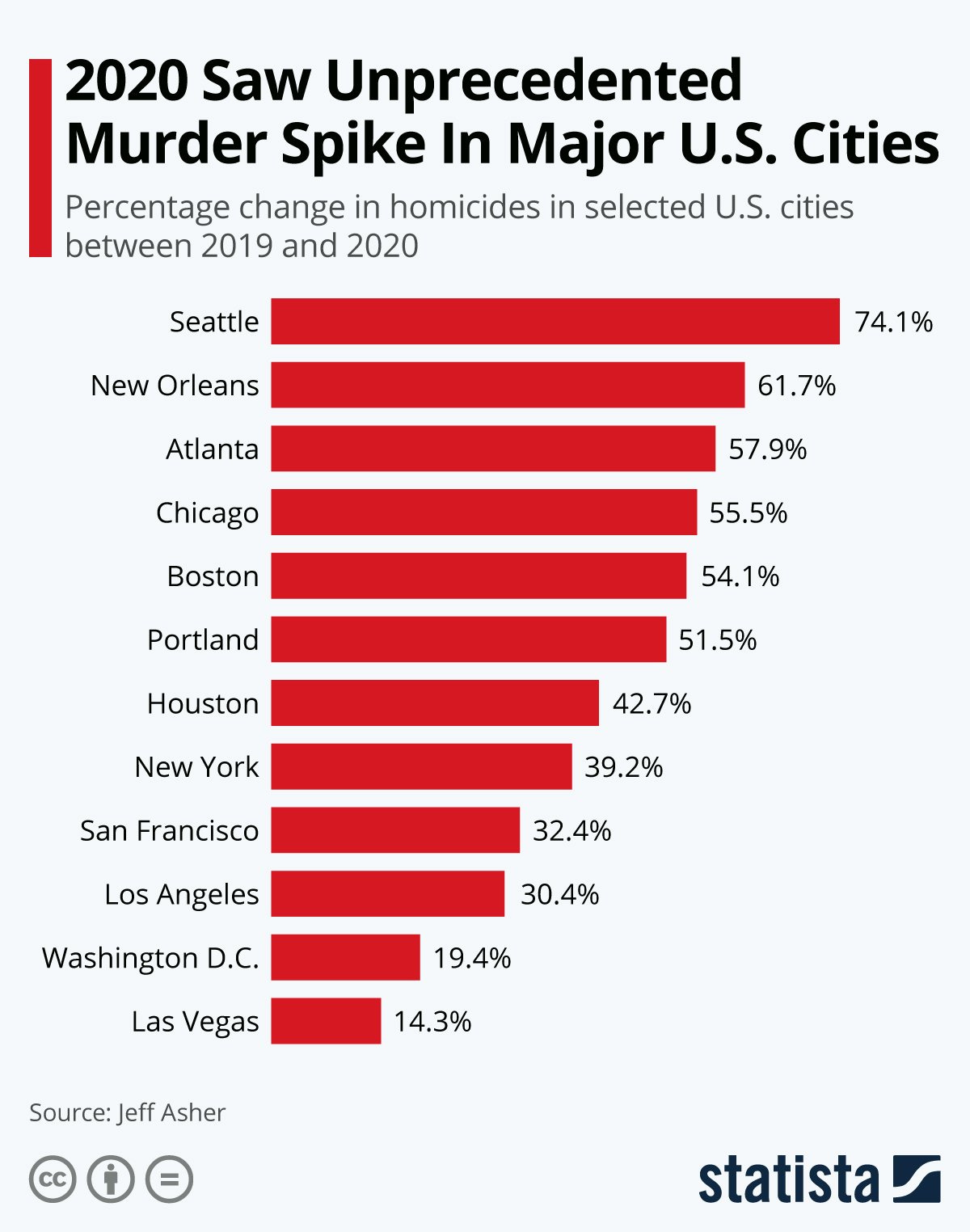Short thoughts + Bloomberg roundup, 1/16/21
Twitter silliness, the vaccine debacle, coups and the economy, Jim Simons, and more craziness from the final week of the Trump Era
I think Sunday is a good day for newsletter-like posts. I’ve been doing a bunch of “short thoughts” posts recently, mostly because of the coup on 1/6. But I think one post of short thoughts per week seems good, especially when paired with the Bloomberg roundup.
Minimum wage: Faith vs. Reason
I wrote a whole huge post a few days ago about why economists have changed their thinking on the minimum wage, and how the weight of evidence shows that minimum wage hikes aren’t dangerous, at least up to around 60% of local median wages.
So why didn’t the entire internet immediately read and understand and internalize my post? Heck, I don’t know. But for whatever reason, there are still some people who think that simply uttering the talismanic word of “economics” will prove that minimum wage is bad bad scary bad:
Then there are those who have internalized the idea that economists aren’t very afraid of the minimum wage, but who hold up certain legendary economists of the past as their talismanic protectors against the idea:
When are folks going to realize that enchanted faerie libertarian economists aren’t going to swoop down out of the sky and protect them from policies they don’t like? In this house we follow the evidence, folks.
Well, you know. Hopefully.
Vaccine flailing
I assume and hope that vaccination will vastly improve once Biden comes in next week with money and a solid national plan. But in the meantime, the agonizingly slow pace of vaccination seems to have exposed every bit of rot and inefficiency and incompetence and complacency in the U.S. public health system. We dumped the vaccines on CVS and Walgreens and simply expected them to find all the right people to fit the insanely byzantine priority queues that our wise ethics people designed for us without a thought for whether they were practically implementable. Instead, we should have been taking vaccines door to door with an army of workers from both the public and private sector. Here’s a thread on how countries in Africa and Asia do this:
This fits with one of my general themes — that America needs to humble itself and start copying best practice from countries that have things figured out more than we do, instead of imagining that we can reinvent the wheel.
Fortunately, Biden’s big economic plan includes a big push to revitalize our public health infrastructure, so hopefully once the adults enter the room we’ll stop flailing and start fixing our shattered system.
Red-Brownism
Most of the Left is quite properly throwing its back into the fight against fascism, but there are a few who apparently think America is going too hard on the Trumpists. Here are Glenn Greenwald, Briahna Joy Gray, and one of the Chapo guys talking about how apparently we’re just egging the Trumpists on by making them feel humiliated and powerless:
Call me crazy, but I feel like when you attempt to violently overthrow the duly elected Congress of the United States in order to overturn a free and fair election, you should go to prison, regardless of your feelings of humiliation and powerlessness. Also, if you’re a CEO or a lawyer and you feel humiliated and powerless because The System doesn’t allow you to storm the Capitol Building, capture Congress, and overturn the results of a free and fair election…well, maybe you got what was coming to you.
Anyway, I don’t get why anyone on the Left would try to make excuses for the Trumpist villains. I can’t see the approach taken in this video playing too well on the Left in general.
Then there are the Jacobin writers who somehow think that labeling Trump a “fascist” (which of course he is) will open us up to the danger of a whole new repressive security state…as if worries about fascism ever made people want more of a repressive security state. Talk about a hot take! I mean, yes, we need to harshly punish the people who tried to overthrow Congress, but I don’t think anyone is thinking that we need a whole new authoritarian infrastructure to guard against the fascists to create a whole new authoritarian infrastructure. Can you find something else to worry about, guys?
Luckily, Bernie Sanders is having absolutely none of this nonsense, nor is AOC. And as the new chairman of the Senate Budget Committee, Bernie is preparing to spearhead the most progressive economic agenda seen since the days of LBJ. Not all of the Left is moving forward into the new era, but most of it is.
Murder murder murder
I have to say, I’m a bit worried about the big nationwide spike in murders in 2020:
I’m sure people will all have their various explanations for the surge. The problem is that whatever the cause, murder surges tend to take years to abate — if they ever do. We could be in for a very violent decade. The best-case scenario is probably something like the murder spike of 2015-16 which went away after two or three years. The worst-case scenario is a new 1970s, with violence staying high for decades and hollowing out American cities while killing off a new generation and ultimately sparking a “tough on crime” crackdown that sends incarceration soaring. I really hope it’s not the latter.
Anyway, with that cheery thought in mind, on to this week’s Bloomberg Opinion posts!
Coups, Insurrections, and the Financial System
Fascist coups and insurrections are generally bad. But in addition, they’re also bad for business. In the first of a two-part series, I discuss how prolonged political violence and instability in the U.S. could introduce a risk premium to U.S. Treasury bonds, thus upending the financial system — and by extension, the global economy.
Excerpts:
Currently, U.S. government bonds -- Treasuries -- are considered the safest asset on the planet. That's because a U.S. sovereign default is widely considered unthinkable. That perception of absolute stability allows them to be used as a universal form of collateral that underpins the U.S. banking system. It also prompts foreign countries to heavily invest in the U.S. financial system as the safest haven in which to park their money…
But an era of political instability can transform the unthinkable into merely unlikely. Even a very small possibility that the U.S. might fail to make some of its debt payments can roil financial markets…even a small risk premium in the assets that they use as regulatory capital and collateral might cause nervous banks to pull back lending, extending the recession. That’s in addition to the risk of an austerity program.
Read the whole thing here!
Coups, Insurrections, and Growth
I realize that worrying about the economic growth impacts of a Trumpist insurrection is a little like that old meme:
But “the economy” has real consequences. A slowdown feeds back into instability, raising the chances of a total collapse. And a total collapse, as Venezuela has grimly demonstrated, is something to be avoided at all costs. Anyway, in the second of my Bloomberg two-parter, I discuss why Trumpist violence could put a damper on growth if we don’t put a damper on Trumpist violence first:
Research has drawn a clear and consistent link between political instability and economic slowdowns. In 2011, the International Monetary Fund looked at a large sample of countries and found that various measures of political instability were correlated with lower subsequent economic growth from 1960 through 2004…
If you’re a businessperson and you don’t know who’s going to be in charge of the country in a year, it makes sense not to make any big investments that might be seized by the government, regulated out of existence or destroyed in a wave of violence…
These effects could easily produce the kind of economic slowdown in the U.S. that we’re used to seeing in countries like Venezuela, Thailand or Turkey. Declines in investment, productivity growth, entrepreneurship, labor demand and government competence would punish U.S. workers and business owners alike, even if the financial system manages to remain stable.
Read the whole column here!
Advice for Biden
I wrote a column laying out the principles I think Biden should use to guide his economic policy program. A day after that column was published, Biden came out with an economic plan that exactly followed the principles I laid out. Also, a number of other columns appeared around the same time, urging the same things.
So…that’s good! At least everyone is thinking along the same lines. The basic idea is: Be bold, but focus on long-term reforms that also have immediate relevance to the current crisis — public health, income support, jobs — rather than trying to quixotically things like health insurance.
Excerpts:
Biden can learn from the experience of Barack Obama, whose focus on health-insurance reform provoked a midterm backlash and probably forfeited a chance to boost the country out of the Great Recession sooner…
Biden needs to come right out of the gate with a coordinated, well-funded vaccination plan that reaches maximum vaccination rates as fast as possible. In doing so, he also needs to bolster public health agencies and revitalize and reform both the Centers for Disease Control and the Food and Drug Administration after years of neglect…
After the virus is beaten, the U.S. economy will still linger in recession unless the government acts decisively to boost demand…A huge build-out of solar power and electric-car charging stations, including subsidies to rapidly replace fossil fuel plants and gasoline vehicles, will ensure that the U.S. economy comes roaring back while making huge steps toward decarbonization.
Read the whole thing here!
Jim Simons and Market Efficiency
Did Jim Simons and Renaissance Technologies prove markets are inefficient? Or did he prove that they’re kinda-sorta-usually-mostly-somewhat-close-to-efficient?
If there was ever going to be someone who could prove that theory specious, it was Simons. A world-class mathematician, Simons quit his teaching job in the math department at Stony Brook University at age 40 to pursue a career in investing. He hired the most elite mathematicians and scientists money could buy, from all over the world…That combination of personnel roster and management culture was simply smarter than the market…
Undoubtedly, the reason [Renaissance’s flagship] Medallion [fund] stays relatively small is that its strategies don’t scale up. The market inefficiencies that allow brilliant mathematicians to make steady money aren’t infinite; bet enough money on these strategies, and they stop making huge profits, as prices move into a more efficient alignment. This is why Renaissance doesn’t let investors keep all their money in Medallion, and no longer solicits money from new outside investors.
In other words, by showing that it’s possible to consistently beat the market, Jim Simons and his merry band of math whizzes also show how incredibly hard it is to do so.
Read the entire column here!
Anyway, that’s it for this week. Stay tuned for more “coup thoughts” posts in the next few days as the Trump era staggers to its end. Or maybe not, if the insurgency fizzles out. We can only hope.








Historians who study authoritarian regimes point out that if you have one coup attempt, you will keep getting more coup attempts until you crack down hard on them; the same pattern as you pointed out in Japan. So yes, people should get locked up, the 14th Amendment should be used to wreck a whole bunch of political careers, and 45’s impeachment should result in conviction (or at least a 14th Amendment ban on running again). If we do less, it is likely that the peaceful transfer of power in this country will be a thing of the past and every elected official will have to live in a walled compound that they never depart without a security detail.
I think you were far too dismissive of concerns about the effects of a higher minimum wage in low-COL areas. The median hourly wage for the entire state of Mississippi was $15.00 in May 2019, and there are areas where $15 is more than 100% of the median wage.
https://www.bls.gov/oes/current/oes_ms.htm#00-0000
It's true that monopsony power is strongest in areas with few employers, but is finite. You can't just wave your hands, chant "monopsony," and then raise the minimum wage to 110% of the median wage with no adverse effects on employment. Note also that monopsony power is weakest for unspecialized workers due to the wide variety of firms that need unspecialized labor. A professor of economics or aerospace engineer might have only one suitable local option for employment, or a handful at most, but someone who has no special skills has a much wider array of suitable job options.
Now, it's possible that the phase-out will be long enough to inflate it down to more reasonable level, but if you're going to make that argument, it's essentially a concession that $15 is too high for current market conditions.